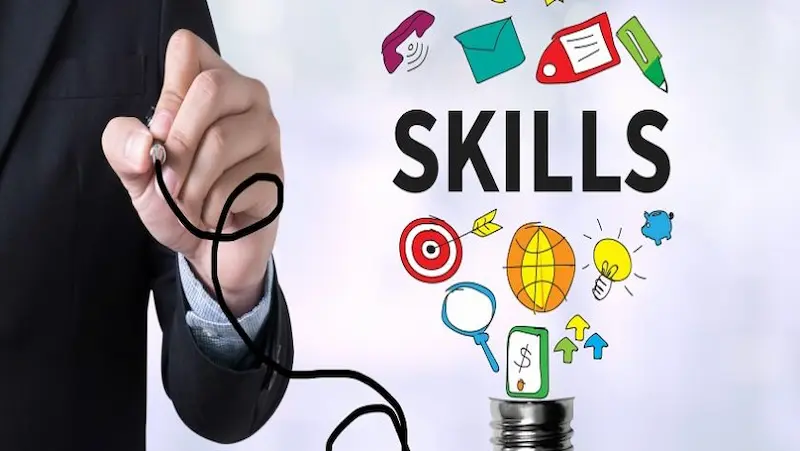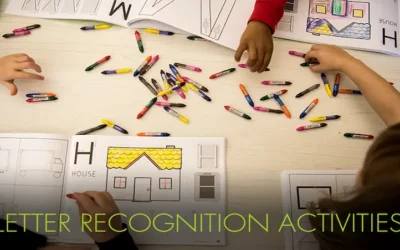In our ever-evolving world, the significance of skill development cannot be overstated. As we navigate through the complexities of modern life, the ability to acquire and refine new skills becomes paramount. It empowers us to adapt, excel, and thrive in a rapidly changing landscape. In this exploration, we’ll delve into the profound importance of skills development, unraveling how it shapes not only our personal growth but also the trajectory of society as a whole. So, let’s embark on this journey of understanding why honing our skills is a cornerstone of progress and success.
Table of contents
Identifying Your Skill Set
When it comes to personal career growth and professional development, one of the crucial steps is identifying your skill set. Understanding your current abilities and setting goals for the skills you want to acquire can pave the way for success and fulfillment. In this blog, we’ll explore two essential aspects of this journey: self-assessment and goal setting.

Self-Assessment: Recognizing Your Current Skills
Imagine your skill set as a toolkit. Before you embark on a project, you need to know what tools you have at your disposal. Self-assessment is the process of taking a close look at your current skills and abilities. It’s about acknowledging your strengths and recognizing areas where you can improve.
To begin, take some time for introspection. Seek feedback from peers, mentors, or colleagues to gain an external perspective. You might discover talents you weren’t even aware of.
Remember that self-assessment isn’t about judgment or comparison; it’s about understanding where you stand so you can chart your path forward.
Goal Setting: Defining Your Desired Skills
Once you have a clear picture of your current skills, the next step is setting goals for the skills you want to acquire or enhance. Goals provide direction and motivation for your self-improvement journey.
Start by defining specific, measurable, and achievable goals. Instead of saying, “I want to be better at communication,” say, “I will attend a effective communication tips workshop and practice active listening in meetings to improve my communication skills by the end of the quarter.”
Break your goals into smaller, actionable steps. This makes them less overwhelming and more manageable. Regularly review and adjust your goals as you progress and gain new insights into your abilities.
Setting Clear Learning Objectives

SMART Goals for Effective Skill Development
SMART stands for Specific, Measurable, Achievable, Relevant, and Time-bound. These criteria help us create goals that are clear and actionable. Instead of setting vague objectives like “become better at coding,” we can make it SMART by saying, “Learn Python programming to an intermediate level within six months, which will help me excel in my data analysis role.”
By being specific about what you want to achieve, you can measure your progress, ensure it’s achievable within your capacity, keep it relevant to your personal or professional goals, and set a time limit for accomplishing it. SMART goals provide a roadmap for skill development, making your efforts more focused and productive.
Prioritizing Skills Based on Personal and Professional Goals
While it’s tempting to acquire every skill under the sun, it’s essential to prioritize. Your personal and professional goals should guide your choices. Consider what academic skills will have the most significant impact on your desired outcomes.
For instance, if you aim to climb the corporate ladder, leadership and communication skills might be your top priorities. On the other hand, if you dream of becoming a successful freelance writer, honing your writing and marketing skills could be more crucial.
Practical Skill Development Tips

Breaking Down Complex Skills: The Path to Mastery
Imagine you’re learning to play the piano. The idea of tackling all those keys, pedals, and musical notation might seem daunting. But here’s where the magic of breaking things down comes into play. Instead of trying to play a whole piece from the start, focus on individual components. Start with scales, then move to chords, and gradually piece them together into melodies and compositions.
This method applies to almost any skill. Language learners can begin by mastering essential vocabulary, grammar rules, and pronunciation before engaging in complex conversations. Athletes build their expertise by perfecting basic drills before advancing to more intricate game scenarios. The key is to slice the skill into digestible parts, making the learning strategies process less overwhelming.
The Role of Consistency and Repetition
Now, let’s talk about the importance of consistency and repetition. Once you’ve broken down your skill into manageable pieces, the next crucial factor is practice. Consistency and repetition are your allies in skill development.
Imagine you’re a writer aiming to improve your storytelling abilities. Writing a novel may seem like a monumental task, but if you consistently write a few hundred words every day, you’ll steadily progress. The same goes for fitness enthusiasts who follow a daily workout routine or artists who practice their craft regularly.
Overcoming Skill Development Challenges

Dealing with Plateaus and Frustration
Imagine this: you’ve been diligently working on a skill for months, maybe even years. You’ve made great strides, and then suddenly, progress grinds to a halt. This is what we call a plateau, and it can be incredibly frustrating.
But here’s the thing about plateaus – they’re not the end of the road. They’re more like a pit stop on your journey to mastery. Plateaus can actually be a sign that you’ve reached a new level of competence, and your brain is adjusting to the new challenges.
So, what can you do when you hit a plateau? First, don’t get discouraged. Acknowledge your frustration, but also remember how far you’ve come. Take a step back, review your approach, and consider seeking feedback from others. Sometimes, a fresh perspective or a new technique can help you break through the plateau and continue your progress.
Managing Time for Skill Improvement
Life is busy, and finding time for skill improvement can seem like a Herculean task. But here’s a secret: it’s not about having more time; it’s about making the most of the time you have.
Start by setting clear goals. What skill do you want to develop, and what specific outcomes are you aiming for? Once you have a goal in mind, break it down into smaller, manageable tasks. This makes it easier to slot skill development into your daily routine.
Consistency is key. Dedicate a small chunk of time each day, even if it’s just 15 minutes, to practice and improvement. Over time, these small increments add up and become a habit.
Transferable Skills vs. Industry-Specific Skills

Identifying Skills That Span Across Industries
Transferable skills, also known as soft skills or core skills, are those that are valuable across a wide range of industries and job roles. They are like the Swiss Army knife of your skillset – adaptable and versatile. These skills include communication, problem-solving, teamwork, adaptability, and critical thinking.
Transferable skills are the bedrock of your career planning foundation. Regardless of your chosen field, these skills enable you to excel in various situations and pivot between industries when needed. They are what make you an effective employee, manager, or leader, irrespective of your specific job title.
Navigating Industry-Specific Skill Requirements
On the other hand, industry-specific skills are precisely what the name suggests – skills that are tailored to a particular sector or job. For example, if you’re in the IT industry, you might need programming languages like Python or Java. If you’re a nurse, you require specific medical knowledge and patient care skills.
Balancing transferable skills with industry-specific skills is crucial. While transferable skills provide a strong foundation, industry-specific skills give you the expertise required for specialized roles. The ideal approach is to combine both sets of skills to make yourself a well-rounded and desirable candidate in the job market.
Balancing Skill Development and Work-Life

Integrating Learning into Daily Routines
The key to sustainable skill development is making it a seamless part of your daily life. Instead of cramming hours of learning experience into your already-packed schedule, consider these strategies:
1. Microlearning: Break down your learning goals into bite-sized chunks. Dedicate just 15-30 minutes a day to acquire new knowledge or skills. Over time, these small increments add up significantly.
2. Use Commute Time: If you commute to work or have downtime during the day, leverage that time for learning curve. Audiobooks, podcasts, or language learning apps can turn your commute into a productive learning session.
3. Lunch Break Learning: Swap mindless scrolling on your lunch break for reading industry articles, taking online courses, or practicing a new skill. It’s an efficient way to squeeze learning into your workday.
Maintaining Work-Life Balance
While learning resources is important, it shouldn’t come at the expense of your well-being and personal life. Here’s how to strike that elusive work-life balance:
1. Set Boundaries: Define clear boundaries between work and personal time. Communicate your working hours to colleagues and family, and stick to them. Avoid checking work emails or taking calls during your downtime.
2. Prioritize Self-Care: Schedule regular self-care activities like exercise, meditation, or spending time with loved ones. These activities rejuvenate your mind and keep burnout at bay.
3. Delegate and Say No: Learn to delegate tasks at work and say no to additional commitments when your plate is already full. Overextending yourself leads to stress and decreased productivity.
Adapting to Technological Advancements

Staying Relevant in the Age of Automation:
Automation is reshaping industries, from manufacturing to customer service. It’s natural to worry about job security when robots and algorithms are becoming more capable. However, remember that technology also creates new opportunities. To stay relevant:
1. Upskill: Identify the skills that are in demand in your field and invest time in mastering them. Whether it’s coding, data analysis, or digital marketing, learning these skills can make you indispensable.
2. Embrace Change: Don’t resist automation; instead, find ways to work alongside it. Automate repetitive tasks to free up time for more creative and strategic work.
3. Networking: Connect with others in your industry to stay updated on the latest trends and opportunities. Sometimes, a simple conversation can lead to exciting new paths.
Embracing Lifelong Tech Learning:
The concept of “lifelong learning” has never been more relevant. Technology is advancing at lightning speed, and to keep up, you must be committed to continuous learning:
1. Online Courses: There’s a wealth of online courses and resources available. Platforms like Coursera, edX, and Khan Academy offer courses on a wide range of tech-related topics.
2. Certifications: Earning certifications in your field demonstrates your commitment to staying current. Many industries recognize certifications as a mark of expertise.
3. Stay Curious: Be curious about emerging technologies. Experiment with new tools and gadgets in your free time. This hands-on experience can be invaluable.
Conclusion
In conclusion, embarking on your skills development journey is an empowering choice that can lead to personal development growth and new opportunities. Remember, every step forward, no matter how small, brings you closer to your goals. So, embrace the process, stay motivated, and watch your potential unfold. Your journey starts now, and the possibilities are endless.
To get your hands on more such articles, educational content, and free resources on coding for kids, robotics courses, game development, etc., check out the BrightCHAMPS Blog Page now!
Frequently Asked Questions
A1. Start by identifying your personal and professional goals, then prioritize skills that align with them. Consider your interests, strengths, and the skills in demand in your field.
A2. No, it’s never too late! Skill development is a lifelong journey. Start at your own pace, set achievable goals, and stay consistent in your efforts.
A3. Break your goals into smaller, manageable steps. Find a supportive community or mentor. Celebrate your progress, and remind yourself why you started in the first place.
A4. Allocate dedicated time for skill-building, even if it’s just a few minutes a day. Prioritize and eliminate time-wasting activities to make room for learning.
A5. Yes, many! Explore websites like Coursera, Khan Academy, edX, and YouTube tutorials. Libraries often offer free access to online courses as well.


 We are an army of educators and passionate learners from BrightChamps family, committed to providing free learning resources to kids, parents & students.
We are an army of educators and passionate learners from BrightChamps family, committed to providing free learning resources to kids, parents & students.
























